What is data literacy, and why does it matter for your organization?
What is data literacy?

Why is data literacy important for your business?
It’s a strategy that can transform your business, while building loyalty with a workforce that’s energized and empowered by your investment in their professional development.
More resources:
- Discover the top 10 BI & Data Trends
- Learn about Active Intelligence, the next era in BI
“Large enterprises with strong corporate data literacy have shown up to 5% higher enterprise value — $320 - $534 million.”
-
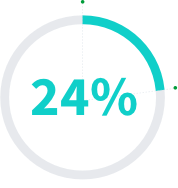 Business decision makers confident in their ability to use data
Business decision makers confident in their ability to use data -
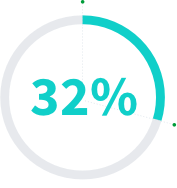 C-suite leaders viewed as data literate
C-suite leaders viewed as data literate -
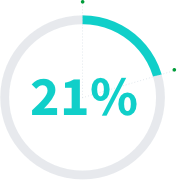 16 to 24-year-olds who qualify as data literate
16 to 24-year-olds who qualify as data literate
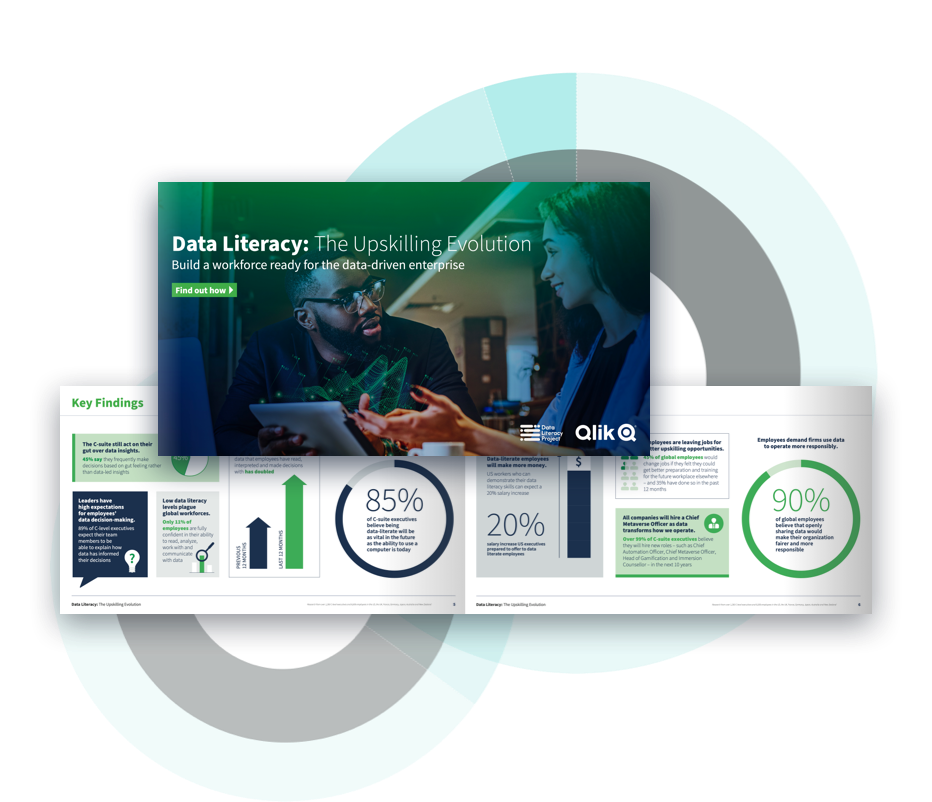
OUR LATEST RESEARCH REPORT
Data Literacy: The Upskilling Evolution
Based on insights from influential industry experts and a global survey of over 1,200 executives and 6,000 employees, our latest data literacy study found that the data literacy crisis shows no sign of slowing down as the gap between expectation and reality continues to widen. Revealing the pressures on organizations and individual employees as we continue to move toward a data-orientated and automated workplace, the study helps you understand the upskilling requirements needed to take full advantage of data – now and in the future.

Data literacy in today’s enterprise
-
Business leaders
Gartner promotes data and information as the second language of business. Yet new research shows that business leaders are struggling to understand and work with data themselves. And that’s leading to widespread deficiency in data confidence.
“In a recent Censuswide survey on behalf of Qlik, more than 7,300 business decision makers, just 24% consider themselves data literate.”
Without data literacy, leaders can’t thrive in today’s analytics economy nor can they drive any cultural change toward leading with data across their organizations.
-
Employees
Employees without the skills to work with data are struggling to match the performance of their data-savvy colleagues. This isn’t surprising given the vast amounts of information being produced every day.
“Despite 92% of business decision makers believing it is important for their employees to be data literate, only 17% report that their business significantly encourages employees to become more confident with data.”

“The more empowered employees are to read, write, analyze and argue with data, the more they will be able to contribute to their roles and the future of their organizations.”
How data literacy can advance your career
Qlik's recent survey showed that the vast majority — 85% — of data literate employees say they’re performing very well at work, compared with just 54% of the wider workforce. This represents a significant opportunity for businesses to transform existing cultures without much resistance from their employees.
Workers willing to invest more time and energy into improving their data skillsets
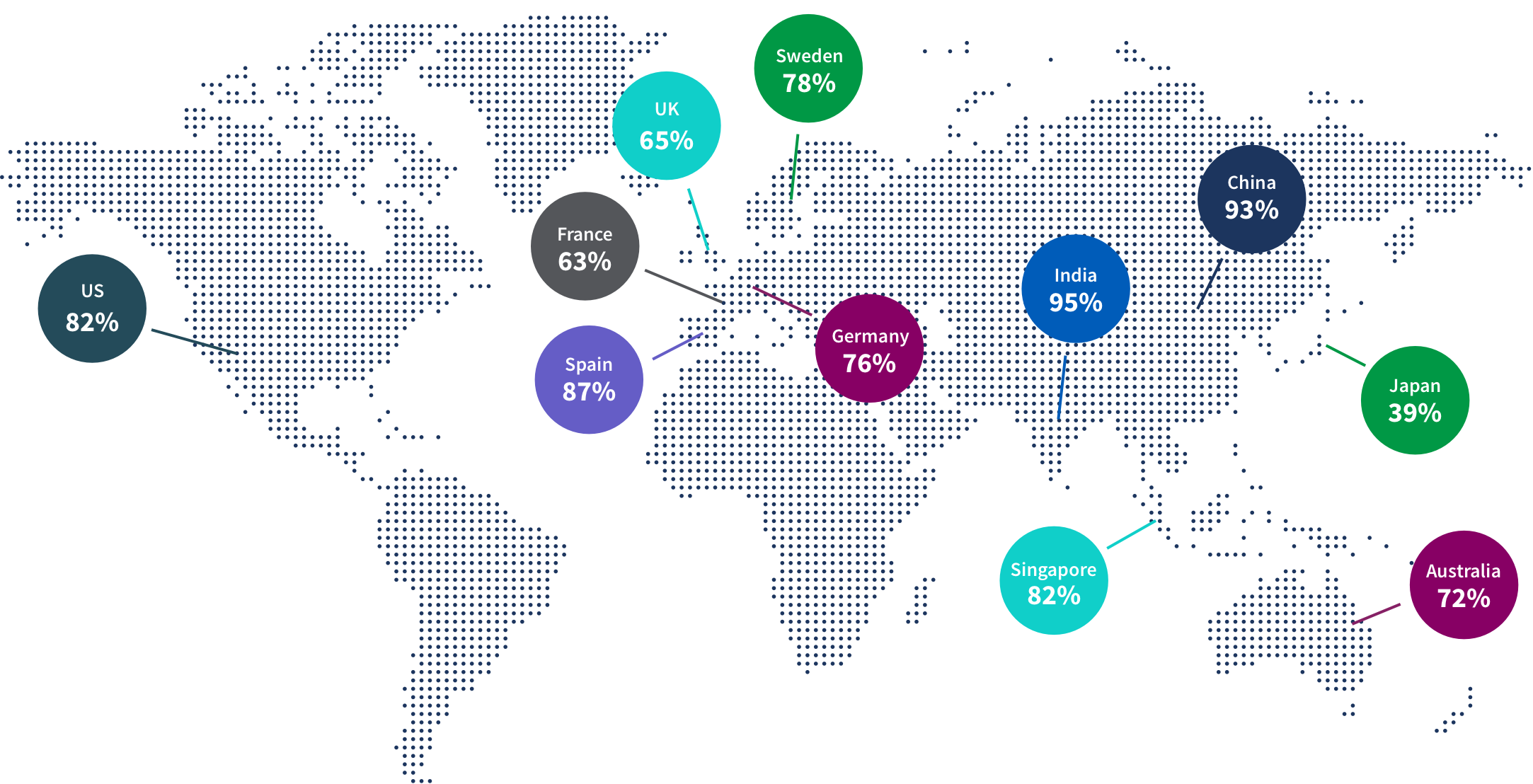
-

94% of people using data in their current job role agree that data helps them do their job better.
-

82% believe that greater data savviness would give them more credibility in the workplace.
-

78% would be willing to invest more time and energy into improving their data skillsets if given the chance.
5 critical data literacy challenges for business leaders
Maintaining competitive advantage means that every employee in an enterprise — not just the data scientists — must be data literate for them to effectively contribute to the organization. Yet research has identified vast inequalities between people who feel empowered and proficient in using data, and those who don't.
1. Workforce resistance
Large organizations are built on years of tradition. Raising awareness that the business is moving to a data-driven culture will be critical to success.
2. No data champion
Because resistance may come from the top, data champions need a seat at the table such as a Chief Data Officer (CDO) or Chief Analytics Officer (CAO).
3. Lack of governance
Enterprises are experiencing unprecedented levels of data production and consumption, which is why leadership must be responsible for data governance to ensure insights are properly vetted.
4. Employee insecurity
21% of 16-24-year-olds rank themselves below average in their confidence using data. The opportunity for businesses to leverage young people’s digital savvy as students enter the workforce is enormous.
5. Organizational silos
Data literate employees typically join IT or BI teams, and are often isolated from business decision makers. Establishing forums for these employees to share knowledge is critical to enhancing skills across the organization.
Discover how Qlik can help drive data literacy in your organization
We’re on a mission to provide the education, technology, and business strategies that create a data-literate world — where everyone can speak the language of data, and use it with confidence to make discoveries that change the game.
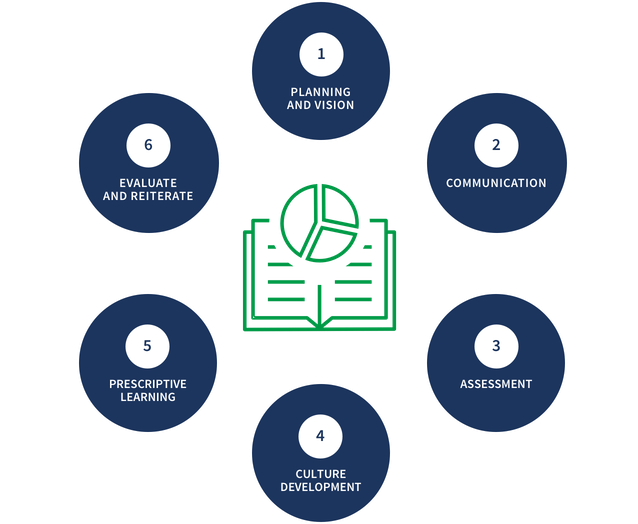
A blueprint for data literacy
Regardless of the size or focus of your business, you can develop an in-house program by following our 6-step approach. As teams cycle through the program, literacy will deepen across the organization, and you'll enjoy a workforce that’s energized, empowered and loyal.
-

Step 1. Planning and vision
A strong program starts with a formal discussion to define your participants, funding and adoption timeframe. -

Step 2: Communication
You'll craft a thoughtful communication plan describing why you are putting the program in place, and conveying your leadership's commitment to it. -

Step 3: Assessment
You’ll introduce participants to our data literacy assessment tool to help determine their comfort level with data. Learning roadmaps for each level will follow.
-

Step 4: Cultural development
Your program will improve data literacy through learning that weaves into the existing culture over time as it continues to prove its value. -

Step 5: Prescriptive learning
Our prescriptive learning roadmaps offer a “buffet” of resources for individuals to choose according to their learning style and available time. -

Step 6: Evaluate and reiterate
You decide the kinds of metrics that will be used to evaluate the program, and how frequently progress should be measured — and celebrated!
Ready to learn more?
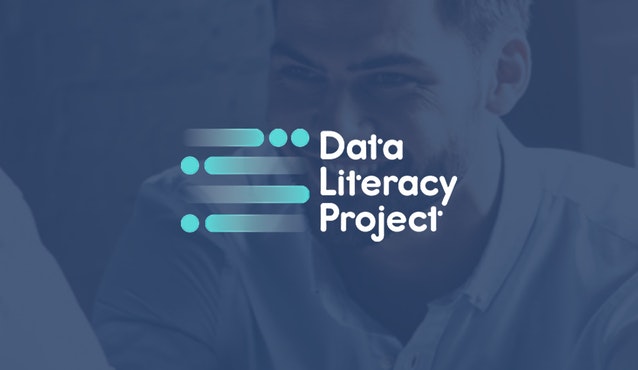
Access the best resources and experts to drive success
The Data Literacy Project is an independent global community that aims to ignite discussion and develop the tools we need to shape a successful, data literate society. Access a powerful ecosystem of resources and experts to help you drive success in your digital transformation.
Education and Adoption Program
Our industry-leading Data Literacy Program offers comprehensive education and consulting options as well as technology and training support for university students through the Academic Program.
-

Assessment
Our assessment will reveal your personal data persona, offering recommended resources and support.
-

Instructor-led learning
Immersive, hands-on training and full day classes delivered by world class instructors, onsite at your location. -

Self-paced learning
Online learning modules, videos, reference guides and live webinars offer broad-based skills development.
-

Certification
Our comprehensive exam is designed to validate your expertise, and is available remotely. -

Workshop
The workshop outlines the foundations of data literacy and how to empower our workforce with data. -

Data Literacy Program
Drive adoption with product-agnostic consulting with our expert advisors based on our 6-step adoption framework.
The right technology for a data-driven culture
Central to our mission is to build technology that can raise data literacy for people at all levels of an organization. Qlik Sense® removes the roadblocks caused by mountains of disorganized data and the limitations of linear, query-based data exploration — accelerating data literacy across the organization.
-

All data, in everyone’s hands
Want the most value from your data? Give everyone in your workforce access to it. Qlik Sense takes raw data from all corners of your enterprise and transforms it into analytics-ready information anyone can access and explore.
-

Freedom to explore
Qlik Sense’s one-of-a-kind Associative Engine connects every piece of data with every other piece. Now, anyone can dive in and explore information without boundaries, discovering hidden insights as they go. No queries, and no waiting required.
-

Human curiosity, amplified
Curiosity can lead to effective insights, but combine it with the power of AI and there's no limit to what we can discover. Qlik Sense taps into our natural intuition and sharpens its power with machine intelligence. This is true augmented analytics. You’ll call it more brain power.
Data Literacy Success Stories
Get smarter about data literacy
-
 REPORT
REPORTData Literacy: The Upskilling Evolution
-
 REPORT
REPORTThe Human Impact of Data Literacy
-
 REPORT
REPORTThe Data Literacy Index
-
 REPORT
REPORTHow to Drive Data Literacy Within the Enterprise
-
 BLOG
BLOGData Literacy Insights
